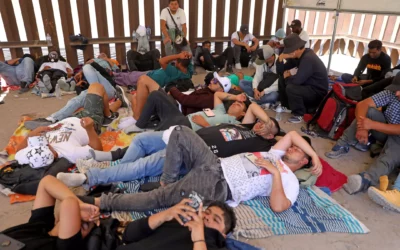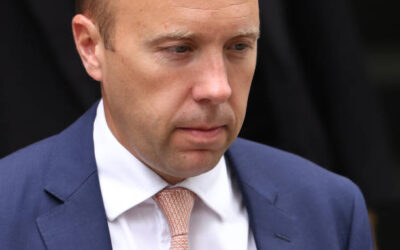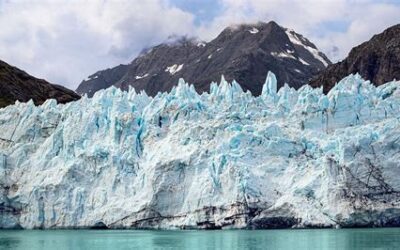“Climate change” profiteering from the Amazon versus the needs of the population causes tensions in Guyana and Brazil
As is a common theme behind the “climate change” agenda, local and indigenous people suffer at the hands of those who seek to capitalise on the natural world and profit from it.
We’ve previously brought attention to the damage and harm climate change profiteers are causing in Africa and elsewhere. In a recent newsletter, Axios highlights the plight of people living in the Amazon basin or Amazonia.
Amazonia is the largest river basin in the world, and its forest stretches from the Atlantic Ocean in the east to the tree line of the Andes in the west. Approximately one-fifth of all freshwater runoff on Earth passes through this watershed. It includes roughly 60 per cent of the world’s rainforest. Parts of Bolivia, Brazil, Colombia, Ecuador, Guyana, Peru, Suriname, and Venezuela lie within the Amazon’s basin.
Through the “climate change” agenda, Amazonia has newly found financial wealth due to the climate change cult’s fixation on contrived carbon emissions and its ugly twin, carbon trading schemes.
When you have people living in poverty sitting on top of vast wealth, the wealth almost always ends up getting realised, one way or another. The indigenous tribes, and the Amazon itself, invariably end up much worse off as a result.
Further reading:
- Electric vehicles are financing slave labour operations and destruction of the environment
- China calls for the UN to displace people and financialise the natural world in the name of “biodiversity”
- Message from an African small-scale farmer to COP28: “Africa needs fossil fuels”
- Richer countries seek to grab large swathes of land in Africa as “carbon credits” to offset their own carbon emissions – it’s a colossal scam
- China, Russia, USA and EU cause devastation in Africa while scrambling for natural resources to feed the climate change cult
- UN’s unprecedented effort to reduce CO2 is really about “green finance” which will be devastating to societies if we don’t stop it
- Lithium reserves in Donbas needed for electric vehicles in EU is fuelling Ukraine war, says German MP
- Green Finance on The Exposé
Let’s not lose touch…Your Government and Big Tech are actively trying to censor the information reported by The Exposé to serve their own needs. Subscribe now to make sure you receive the latest uncensored news in your inbox…
Climate Hypocrisy Takes Centre Stage in the Amazon
The following was originally published by Axios Markets as part of its newsletter for 5 April 2024.
South America’s Amazon region, while extremely poor, sits on hugely valuable natural resources. The resulting tensions between environmentalists and wealth seekers are exploding once again.
Driving the news: The president of Guyana, Mohamed Irfaan Ali, went viral this week for a video in which he lectured a BBC journalist on hypocrisy around climate change.
The developing world, he says, has no right to lecture him about the carbon emissions from offshore oil drilling when those countries had been emitting vast amounts of carbon for centuries during which Guyana itself was consistently carbon-negative.
The big picture: Whether or not Guyana drills for oil is very unlikely to meaningfully change the total global demand for oil or the total amount of carbon produced by burning oil.
It will increase carbon emissions attributable to Guyana – but Guyana also has a desperate economic need to be able to provide a reliable electricity supply to its citizens and companies.
Now it’s going to be able to do that by piping in natural gas from the oilfields and then using that gas to power the national grid.
Zoom out: The Amazon provides Guyana not only with a certain amount of moral high ground when it comes to climate change but also with cash; in 2009, for instance, Norway paid Guyana some $250 million to continue to avoid deforestation.
That number pales in comparison, however, to the amount of money Guyana stands to make from offshore oil drilling. The country has already received $3.5 billion from ExxonMobil and stands to make much more in the future.
Zoom in: Across the border with Brazil, environmentalists are fighting – with guns! – criminal garimpeiros, miners drilling for gold and cassiterite, who are threatening the livelihood of the indigenous Yanomami tribe.
In a report for the New Yorker about a special-forces unit of armed environmentalists, reporter Jon Lee Anderson unpacks a lot of the complex politics involved in the region.
One of his interviewees was a Brazilian judge, Luís Roberto Barroso, who tried to intervene to protect the Yanomami.
What they’re saying: “There is an inescapable reality,” Barroso told Anderson, “which is that you have people living in poverty sitting on top of vast wealth.”
When that happens, the wealth almost always ends up getting realised, one way or another. The indigenous tribes, and the Amazon itself, invariably end up much worse off as a result.
Go deeper: In the New York Times, Gaiutra Bahadur asks, in another deeply reported story, whether Guyana’s oil is a blessing or a curse.











0 Comments